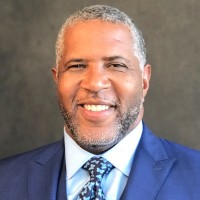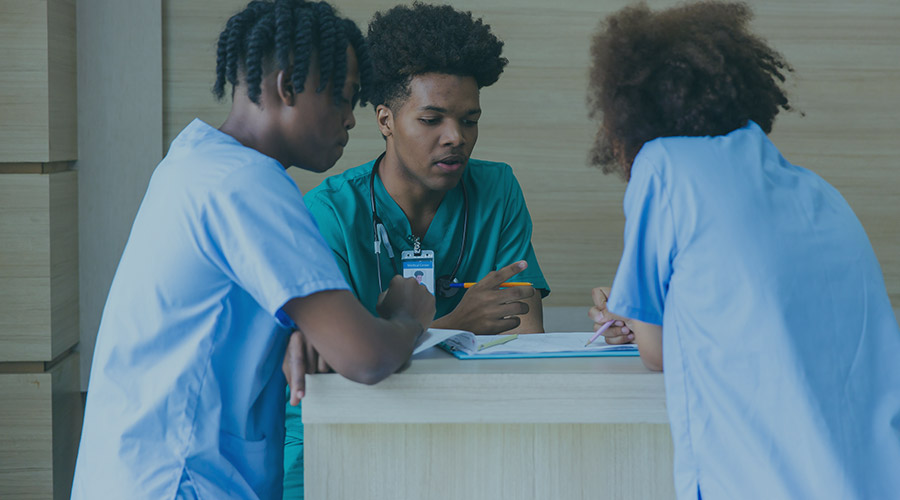Key Takeaways:
- There are 193 medical schools in the U.S., but only four are a part of HBCUs.
- Before 1910, there were about 14 HBCU medical schools, but many closed their doors after the Flexner Report was released the same year
- It was announced that two new HBCU medical schools will open, one at Xavier University and one at Morgan State University.
As of 2023, there are 193 accredited medical schools in the U.S. However, only four are located at Historically Black Colleges and Universities (HBCUs). Still, they produce half of the country’s Black doctors.
Despite the fact that, the number of Black medical professionals in the U.S. is still low. According to a 2022 report from the Association of American Medical Colleges, just 5.7% of doctors in the U.S. are Black.
Below, we will explore the four current HBCU medical schools and the two new schools that are opening. We will also discuss the history of HBCU medical schools and why they are great options for students to attend.
The History of HBCU Medical Schools
Prior to the Civil War, several HBCUs opened to help educate Black Americans. Following the war, many more opened, and with them, several HBCU medical schools were established.
One of the first HBCU medical schools, Howard University College of Medicine, opened in Washington, D.C., just three years after the conclusion of the Civil War. In the decades following, about 13 more Black medical schools were created.
Unfortunately, the number of HBCU medical schools in the U.S. peaked at the turn of the century. During the late 19th to early 20th century, many of these institutions faced discrimination, a lack of resources and low enrollment, which forced some to close their doors. However, the number of HBCU medical schools depleted exponentially after the Flexner Report of 1910 was released.
In 1904, The Carnegie Foundation established the Council on Medical Education to study and improve education for medical professionals. The Council commissioned educator Abraham Flexner to study the state of medical schools in the U.S. The result of his observations, detailed in the Flexner Report, stated that, out of the HBCU medical schools open at the time, only two were legitimate. In the preceding years, every HBCU medical school shut down except the two named: Howard University College of Medicine in Washington, D.C. and Meharry Medical College in Nashville, TN.
The Flexner Report highlights the racism that played a role in closing down HBCU medical schools. Over the course of more than a century, only two additional HBCU medical schools have been established.


Get Industry leading insights from Robert F. Smith directly in your LinkedIn feed.
Get Industry leading insights from Robert F. Smith directly in your LinkedIn feed.
The Four HBCU Medical Schools
Many wonder, many hbcu medical schools are there? The best and only HBCU medical schools still in operation are Meharry Medical College, Howard University College of Medicine, Morehouse School of Medicine and Charles R. Drew University of Medicine and Science. These four institutions offer different medical programs, in addition to traditional Doctor of Medicine degrees. While there is no top hbcu medical school, each one is known for their excellence, as well as dedication to training students to treat medically underserved communities. The following is a list of the HBCU medical schools.
Howard University College of Medicine
The Howard University College of Medicine was founded in 1868 in Washington, D.C. Howard offers dual degree programs for Bachelor of Science/M.D. and M.D./Ph.D. The school also focuses specifically on training its students to better serve the medical needs of those from underrepresented communities.
Morehouse School of Medicine
The Morehouse School of Medicine, located in Atlanta, GA, was founded in 1975. Just six years after the school opened, it became its own independently chartered institution. The school’s mission is to improve the health of communities and increase diversity in the medical field, with a focus on primary care.
Meharry Medical College
Meharry Medical College was founded in 1876 in Nashville, TN. Meharry offers a wide array of medical degree programs, such as a Doctor of Medicine, Doctor of Dental Surgery, Master’s of Public Health and a School of Public Health, among others. On average, the school receives more than 5,000 applications per year.
Meharry has plans for growth, promising that by 2026, they will enroll 1,700 students, including 900 medical students, 500 dental students and 300 graduate students. The mission of the institution is to advance health equity through research, education, health services and thought leadership.
Charles R. Drew University of Medicine and Science
The Charles R. Drew University of Medicine and Science was founded in the wake of the 1965 Watts Riots in Los Angeles, CA. The McCone Commission reported that poor health and a lack of healthcare access contributed to the start of the riots, and something needed to be done to address the issues.
As a result, the Charles R. Drew University of Medicine and Science was officially incorporated in 1966. The school’s mission is to educate a diverse body of students to go out into the world and provide health equity for underserved populations. The university is also a leader in health disparities research.
Two New HBCU Medical Schools
It was announced that two new HBCU medical schools will open at Xavier University and Morgan State University. Both schools aim to generate more Black doctors, address healthcare inequalities and build a more diverse workforce for the future.
Xavier University
Xavier University of Louisiana is partnering with the healthcare organization Ochsner Health to establish a joint medical school. The school will continue a longstanding partnership that began in the 1980s when its College of Pharmacy joined Ochsner Health to create more clinical sites to train students.
Morgan State University
After getting approval from the state Board of Public Works to lease the space on its campus, Morgan State University will open an HBCU medical school. The school will be the Maryland College of Osteopathic Medicine at Morgan State University. Located in Baltimore, MD, the medical school has two goals: create more Black physicians and give Black Baltimore residents access to Black doctors. This will be the only HBCU with an osteopathic medical school. Morgan State aims to open the medical school in the fall of 2024 to 125 students.
Benefits of Attending an HBCU Medical School
There are many benefits to attending an HBCU medical school, especially as a student from an underrepresented community. For example, many HBCU medical schools specifically train their students to serve underrepresented communities. A study released by the Journal of General Internal Medicine also found that Black students at HBCU medical schools feel a greater sense of belonging and confidence in their abilities compared to Black medical students at primarily white institutions.
HBCU medical schools provide an environment that no predominately white institution can replicate, even if they add more underrepresented students to their classes or faculty. Even though there are only several HBCU medical programs, they are a great option for those interested in the field.
To learn more about HBCU medical schools and other important topics, follow philanthropist and entrepreneur Robert F. Smith on LinkedIn.






